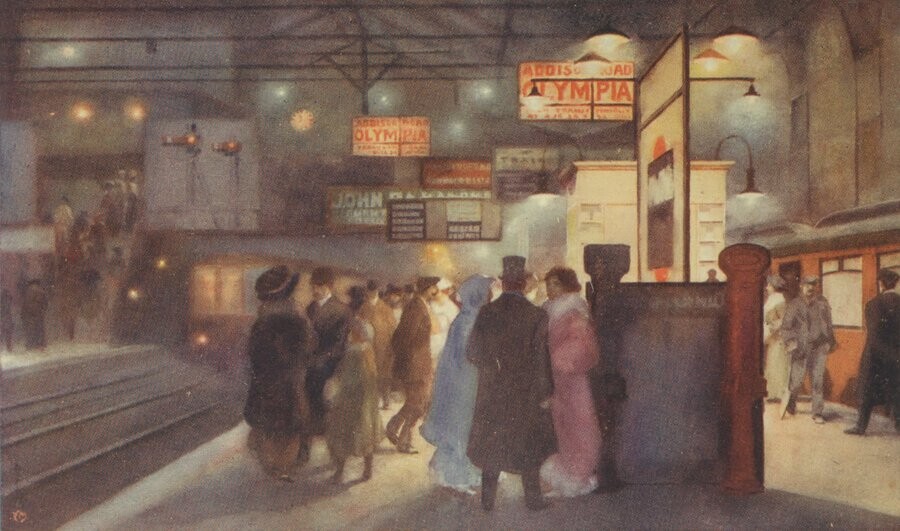
Following the renewed calls for racial justice and the dismantling of systemic racism in 2020, a team of scholars, including the University of Nebraska–Lincoln’s Adrian Wisnicki, came together to re-imagine the way Victorian Studies is taught in classrooms.
This effort to help instructors teach Victorian Studies through a positive, race-conscious lens and go beyond the Anglo-European authors typically taught in Victorian literature courses, has manifested itself in a digital humanities project, “Undisciplining the Victorian Classroom.”

“Undisciplining the Victorian Classroom” is a growing hub for instructors to find inclusive materials for their classrooms and includes lesson plans on African and Caribbean writers, sample syllabi that expand the traditional ideas of Victorian Studies, and 30-minute discussions with Victorian Studies scholars that were recorded over Zoom and cover many topics regarding instruction in the classroom.
The digital project is a collaboration of Wisnicki, associate professor of English; Pearl Chaozon Bauer, associate professor of English, Notre Dame de Namur University; Ryan Fong, associate professor of English, Kalamazoo College; and Sophia Hsu, assistant professor of English, Lehman College, City University of New York.
Victorian studies generally refers to the study of literature produced in Britain by English-speaking people, between 1837 and 1901, coinciding with the reign of Queen Victoria.
“The idea is to develop pedagogical materials that support Victorian Studies education,” Wisnicki said, “by asking students and faculty to center issues related to race in their classrooms and to change the way that students and faculty engage with these issues by taking account of both scholarship from multiple disciplines or fields and primary literature produced by people beyond mainland Britain.”
For example, a lesson plan cluster examines the writing of Mary Seacole, author of “Wonderful Adventures of Mrs. Seacole in Many Lands (1857),” and a British-Jamaican nurse and healer, who gained fame for treating soldiers during the Crimean War. One individual lesson within the cluster, “Decentralizing Britishness,” is designed to “foreground conversations about Seacole’s complex positioning as a colonial subject of color and to encourage critical discourse about ‘Britishness’ as an identity category.”
The name of the project comes from an essay that first appeared in the Los Angeles Review of Books in July 2020, “Undisciplining Victorian Studies,” by Ronjaunee Chatterjee, Alicia Mireles Christoff and Amy R. Wong. The essay pointed out that the largely-white field of Victorian Studies needed to change and expand. The essay kickstarted discussions, including a conversation that eventually launched Undisciplining the Victorian Classroom.
“In the field of Victorian Studies in general, that essay was an awakening,” Wisnicki said. “People realized the problematic or limited ways that Victorian Studies was engaging with these very important and increasingly relevant historical, social and ethical issues.”
Through professional organizations he helps lead — the North American Victorian Studies Association and the British Association for Victorian Studies — Wisnicki met Chaozon Bauer, and they very quickly developed an outline for building the project, then added Fong and Hsu as founding developers.
“In light of the racial justice movements, I started really thinking about how Victorian Studies can shift and change and grow as a field,” Chaozon Bauer said. “It’s still a largely white field in terms of its concepts and methodologies and faculty, and I felt like it was really important for our group to do something.
“As soon as we [Adrian and I] were introduced to each other, we started thinking about what we imagined for Victorian Studies. I shared with him my vision for having a digital humanities project that focused on teaching. There have been a lot of moves with regard to research in Victorian Studies (since the essay), so I thought it would be good to have a project focused on teaching pedagogy.”
The group put out calls for sample lessons and syllabi, and soon had collaborators join them from around the world, something Chaozon Bauer is excited about as the project moves forward.
“Together, we’re producing knowledge that’s founded on anti-racist thought and pedagogy, and our collaborative model also focuses on care of each other, where we are genuinely respectful of everybody’s interests, expertise and knowledge,” she said.
The team is seeking grant funding to grow the project beyond the website, has just received news of one such successful grant application, and plans for the future include workshops to further discussion and support faculty in these teaching endeavors.
“In this next phase of development, we’re thinking about a more focused approach, with the goal of helping faculty, especially early in their careers, develop pedagogical skills that reflect the approaches of our Undisciplining the Victorian Classroom project, and then using that collaboration as a way to bring more extensive change to the field of Victorian Studies,” Wisnicki said.
News about the project and forthcoming opportunities will be shared via Twitter, @UndiscVC.







